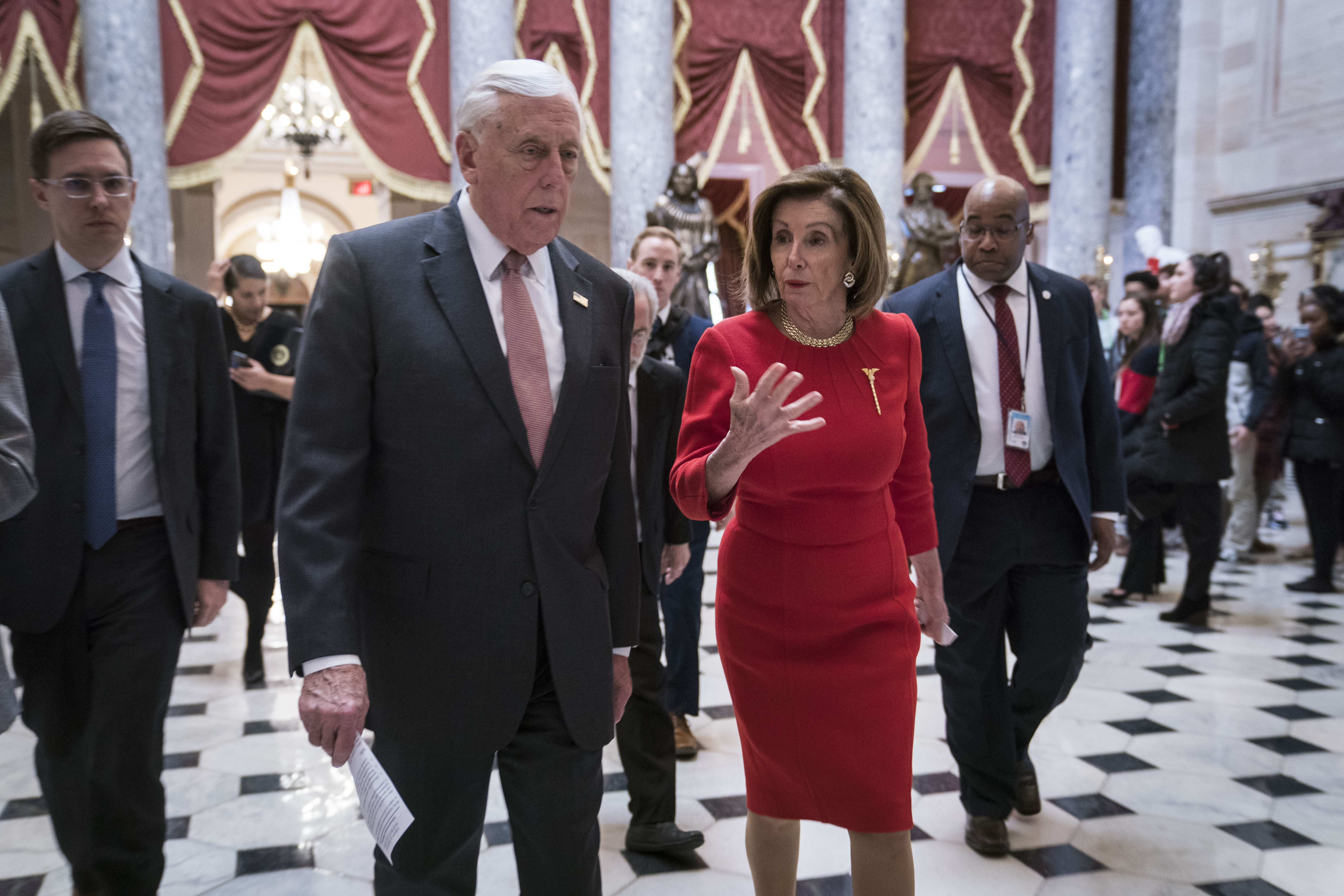Rep. Kevin McCarthy’s ouster as speaker, at the instigation of his own party, left the House without a leader or a clear successor to the California Republican.
“Now what,” someone in the chamber called out after the vote to depose McCarthy had been tallied. It was the first time a House speaker had been voted out of the job.
Two Republicans have put their names forward — Reps. Steve Scalise of Louisiana and Jim Jordan of Ohio — but Donald Trump’s name has been floated too. Although the former president and GOP front-runner for 2024 did not entirely quash the suggestion, he did say he was focused on the presidency.
“A lot of people have been calling me about speaker,” Trump said Wednesday. “All I can say is we will do whatever is best for the country and for the Republican Party.”
But could he even become the speaker? Here is a look at the requirements for the position and what it involves.
What does the speaker of the House do?
The speaker is both the political and parliamentary leader, according to a history of the House. Early on, some speakers played mostly a ceremonial role but more recently, they have set the agenda for the House and their party. They oversee House committee assignments, work with the House Rules Committee to structure debate on the floor to advance their priorities and are responsible for accounting and procurement, according to Rachel Paine Caufield, a professor of political science at Drake University.
Also in the news
Is the House required to have a speaker?
Yes. The Constitution specifically mandates the position. Article 1 states: “The House of Representatives shall choose their Speaker and other Officers; and shall have the sole Power of Impeachment.”
Does the speaker have to be a member of the House?
No, he or she is not required to be a representative. But a history of the position on the House website notes that the speaker always been a House member. Further, A Guide to the Rules, Precedents and Procedures of the House says that the speaker is the only officer of the House that has traditionally been picked from among its members.
How is the speaker of the House selected?
The Constitution requires that a speaker be chosen but does not specify how. House rules say that under modern practice, the election begins with nominations from each party’s caucus, then moves on to a voice vote or “viva voce” by members-elect by surname if a quorum is present. The speaker wins by a majority.
Twice, the House chose a speaker by a plurality of votes but later confirmed the pick by a majority vote. Both of those votes were in the mid-1800s.
There are 435 members of the House, split between 221 Republicans and 212 Democrats.
Has the speaker always been as powerful as today?
The locus of power in the House has changed over the years, according to Caufield of Drake University. In the early 1900s, one speaker wielded so much that his own party rebelled, Caufield wrote. It shifted to committees and then back to the speaker. Since the tenure of Republican Newt Gingrich beginning in 1994, “speakers are often criticized as too partisan and too powerful, trampling minority party interests," she wrote.
Who was the longest-serving speaker?
That honor goes to Sam Rayburn, a Democrat from Texas. He served from before World War II into John Kennedy’s presidency.
Could Donald Trump become speaker of the House?
Trump does not have to be a member of the House, but his felony indictments would block him, at least under current House Republican Conference Rules. Rule 26 states: “a member of the Republican Leadership shall step aside if indicted for a felony for which a sentence of two or more years imprisonment may be imposed.” The speaker is part of the leadership.
Trump faces 91 felony counts across four cases, among them falsifying business records in New York, mishandling sense national security information in Florida, trying to overturn a presidential election, in a federal case and one in Georgia.







